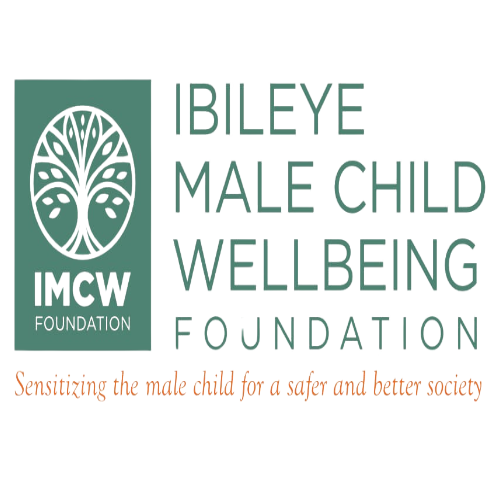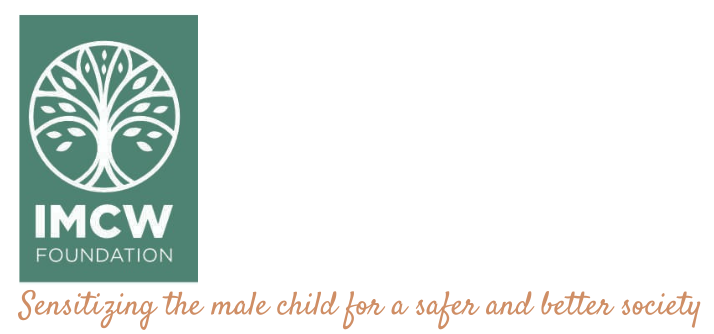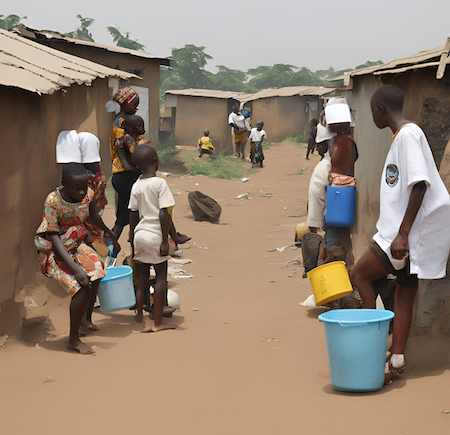IMCW Causes
Mental Health Awareness & Literacy
1. Introduction
The Mental Health Awareness and Literacy Program for the Male Child aims to promote mental health awareness, provide education on mental health issues, and support the mental well-being of male children. This document outlines the activities, objectives, timelines, and evaluation methods for the initiative.
2. Objectives
- Raise Awareness: Increase awareness about mental health issues affecting male children.
- Provide Education: Educate male children, their families, and communities about mental health, emotional well-being, and available resources.
- Support Services: Offer mental health support and counselling services to male children.
- Reduce Stigma: Combat stigma associated with mental health issues.
3. Key Activities
3.1. Mental Health Workshops and Seminars
- Activity: Organise workshops and seminars for male children, parents, and educators on mental health topics.
- Timeline: Months 1-12 (Monthly)
- Responsibility: Education Team
- Outcome: Increased understanding of mental health issues.
3.2. School-Based Mental Health Programs
- Activity: Implement mental health education programs in schools, including curriculum development and teacher training.
- Timeline: Months 2-12 (Ongoing)
- Responsibility: School Programs Team
- Outcome: Improved mental health literacy among students and teachers.
3.3. Community Outreach and Engagement
- Activity: Conduct community outreach activities to promote mental health awareness and encourage community participation.
- Timeline: Months 1-12 (Ongoing)
- Responsibility: Outreach Team
- Outcome: Strong community engagement and support.
3.4. Counselling and Support Services
- Activity: Provide access to counselling and mental health support services for male children and their families.
- Timeline: Months 3-12 (Ongoing)
- Responsibility: Support Services Team
- Outcome: Enhanced mental well-being and support for male children.
3.5. Development of Educational Materials
- Activity: Create and distribute educational materials (brochures, flyers, online resources) on mental health.
- Timeline: Months 1-6
- Responsibility: Communications Team
- Outcome: Widely available resources on mental health.
3.6. Monitoring and Evaluation
- Activity: Continuously monitor the progress of the program and evaluate its impact on mental health awareness and literacy.
- Timeline: Ongoing
- Responsibility: M&E Team
- Outcome: Regular reports on the program’s progress and impact.
4. Timeline
| Activity | Month 1 | Month 2 | Month 3 | Month 4 | Month 5 | Month 6 | Month 7 | Month 8 | Month 9 | Month 10 | Month 11 | Month 12 |
| Workshops and Seminars | X | X | X | X | X | X | X | X | X | X | X | X |
| School-Based Programs | X | X | X | X | X | X | X | X | X | X | X | |
| Community Outreach & Engagement | X | X | X | X | X | X | X | X | X | X | X | X |
| Counseling & Support Services | X | X | X | X | X | X | X | X | X | X | ||
| Development of Materials | X | X | X | X | X | X | ||||||
| Monitoring and Evaluation | X | X | X | X | X | X | X | X | X | X | X | X |
5. Evaluation Metrics
- Awareness Levels: Measure changes in awareness about mental health issues through surveys and feedback.
- Program Participation: Track the number of participants in workshops, seminars, and school-based programs.
- Utilization of Support Services: Monitor the use of counseling and mental health support services.
- Educational Material Distribution: Track the distribution and reach of educational materials.
- Community Engagement: Evaluate the level of community involvement and support.
6. Budget
| Item | Cost (NAIRA) |
| Workshops and Seminars | 1,000,000 |
| School-Based Programs | 1,500,000 |
| Community Outreach and Engagement | 800,000 |
| Counseling and Support Services | 1,200,000 |
| Development of Materials | 500,000 |
| Monitoring and Evaluation | 500,000 |
| Total | 5,500,000 |
7. Team Roles and Responsibilities
- Project Manager: Oversee all activities and ensure timelines are met.
- Education Team: Organise workshops and seminars.
- School Programs Team: Implement mental health programs in schools.
- Outreach Team: Engage with the community and promote the initiative.
- Support Services Team: Provide counselling and mental health support.
- Communications Team: Develop and distribute educational materials.
- M&E Team: Monitor and evaluate the program’s progress and impact.
8. Risks and Mitigation
- Risk: Stigma associated with mental health.
- Mitigation: Conduct awareness campaigns and involve community leaders to normalise mental health discussions.
- Risk: Limited participation in programs.
- Mitigation: Promote programs through various channels and engage with schools and community organisations.
- Risk: Insufficient funding.
- Mitigation: Seek additional funding through grants and partnerships with other organisations.
9. Conclusion
The Mental Health Awareness and Literacy Program for the Male Child aims to create a supportive environment for male children by raising awareness, providing education, and offering mental health support. By focusing on these key areas, the initiative seeks to improve the mental well-being of male children and reduce the stigma associated with mental health issues.
10. Donate to this cause:












